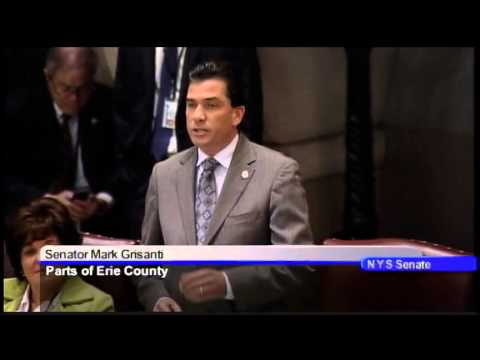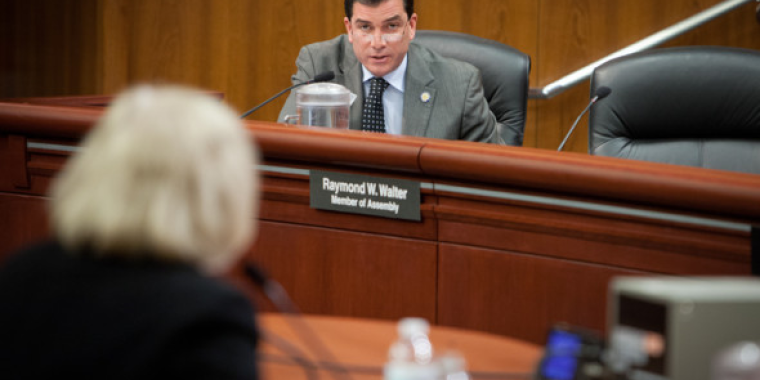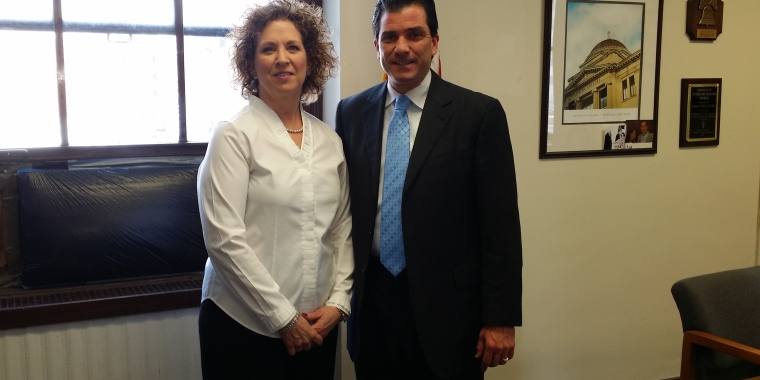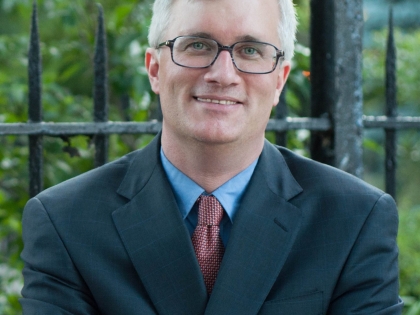
Landlords and tenants find common ground in housing voucher push in Albany
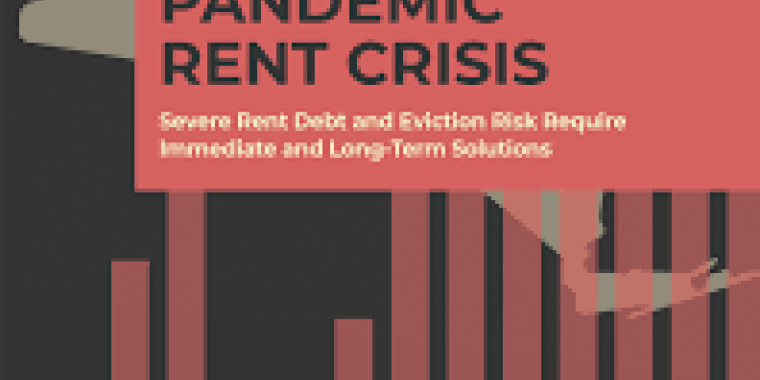
The real estate industry and tenant advocates — usually at odds — are joining forces to push state lawmakers to establish a statewide rent voucher program for homeless people and those at risk of losing their homes.
But Gov. Kathy Hochul says she’s wary of such a program's price tag.
“My position is that I want to relook at the numbers and see what the numbers would look like today in terms of the cost,” Hochul said on Friday. “But you’re basically suggesting that we establish a state version of the federal Section 8 program, which we know it’s a very expensive program to run.”
With the state budget due at the end of the month, a broad coalition of more than 100 organizations is making the case to legislative leaders that creating a Housing Access Voucher Program will put New York on a path to ending the homelessness crisis, which has reached new highs in the five boroughs.
“In order to reduce the number of unhoused people in our state, we must offer families and individuals a pathway out of the shelters and off of the streets today,” the group said in a letter sent to Senate Majority Leader Andrea Stewart-Cousins and Assembly Speaker Carl Heastie this week.
There are more than 90,000 people who have no place to call home in New York state, and most of them are in the five boroughs.
As of Wednesday, 70,848 people were staying at city homeless shelters managed by the Department of Social Services, according to its daily census. There are thousands more homeless individuals living in the city’s streets and shelters managed by other city agencies.
Supporters say the proposed voucher program, which is modeled after the federal Section 8 Housing Choice Voucher and estimated to cost about $250 million, would help move some households out of shelters, prevent evictions and ease rent burdens for the most vulnerable New Yorkers.
Under the plan, people who are eligible to receive the vouchers would spend no more than 30% of their income on housing. The state would cover the remainder of their rental payments. Undocumented New Yorkers, who are often shut out of government assistance programs, would also be eligible.
Hochul, who’s making housing a top priority of her agenda this year, did not include the program in her budget plan unveiled in January.
At a news conference Friday near Albany, the governor said she would discuss the measure in a closed-door budget discussion this month with legislative leaders, but suggested the proposal could be costly.
“I have to maintain our finances in the state, as much as I would like to do a lot of things for the people of New York,” Hochul said. “And so this all will be part of the conversation we’ll be having in the next couple of weeks.”
The coalition – which includes the influential Real Estate Board of New York, the lobbying arm of the real estate industry, and Met Council on Housing, a tenants' rights group – applauded Hochul’s plan to build 800,000 units of housing in the next decade, but said that would take years when a solution to the housing crisis is needed now.
“HAVP does this by offering immediate rental assistance to New Yorkers, both helping people secure permanent housing and preventing others from losing it in the first place,” the coalition said, referring to the Housing Access Voucher Program. “Including HAVP in this year's budget would help more than 50,000 people statewide avoid the trauma of homelessness.”
Last year, the governor’s representatives projected that the rental assistance program could cost the state $6 billion, according to Senate Finance Chair Liz Krueger, a Democrat representing Manhattan, and other lawmakers. The state provided no analysis.
But a study by the NYU Furman Center put the cost at about $250 million in the program’s third year and estimated it would serve more than 13,700 households across the state. The funding, however, would still be insufficient to provide subsidies to all 46,600 households that were living in shelters in 2022.
Stewart-Cousins and Heastie included the $250 million in their one-house budget plan last year, but the legislation failed to move forward. It’s unclear whether they will push the measure again this year. Their spokespeople did not respond to requests for comment.
State Sen. Brian Kavanagh, one of the bill’s main sponsors, said prospects are looking better this year. He said budget negotiations over the last three years mainly focused on responding to the needs brought on by the COVID-19 crisis, which required the state to spend a lot of money on programs it hadn’t planned.
“I think we are now at a position where we do have an opportunity to look forward and see how we kind of proactively meet the needs of New Yorkers in different ways,” Kavanaugh said in an interview. “I'm also more optimistic this year because the governor and my colleagues in the Legislature have all acknowledged that this is a year where we need to do very big things in housing.”
